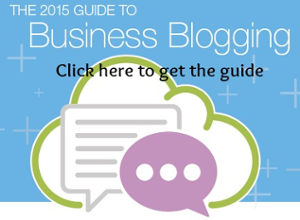Marketers Need to be Good Writers
I’m no writer. Which might become evident as you make your way through this. When I was in college, nobody told me how important writing would be once I landed a marketing job. Maybe they didn’t think it was important because of how fast everything in marketing and advertising changes. But I’ve come to accept my fate as a marketer—I must be a writer. As marketers, we can’t deny it or pretend it isn’t a huge part of our jobs. With marketing and advertising making a shift from traditional to digital, more of our everyday job has become writing. Emails. Blogs. Content. Tweets. Press releases. Proposals. Strategies
Think about it—once upon a time you’d write a brochure or an article for the newspaper or copy for an ad and that piece of copy would hang around for a bit. Now the typical marketing plan includes things like social media, blogs, content, press releases, emails, websites, and digital and social ads—all things you need to constantly change and update. Not only do you need to be producing more and more marketing “stuff,” but what you say and how you say it is becoming vital. You have a split second to grab your audiences’ attention to lure them into clicking and reading your amazing content.
Still don’t fancy yourself a writer? Here are some ideas to help you strengthen your writing muscle.
• Your message is important—no matter the medium. Don’t start writing just to write. Think about your target audience. Carefully compose your tweet, ad, email or blog carefully with them in mind. Will they understand what you’re talking about? Will they get the humor behind your post? Have you ever listened to a hockey game? You might not know all the players or rules, but while you watch you can keep up with what is going on, largely because of the announcers who talk throughout the entire game. They don’t skip a beat when reporting the players’ names (even Khokhlachev), the fouls, the plays or anything else going on. But if you looked at this:
Does it make any sense to you? Could you explain it to someone else? Probably not. But the announcers break the game down into simple language that anyone—not just hockey aficionados—can understand. Make sure you are doing the same for your targets. Use language they will understand and relate to.
- Have a written plan. If you’re writing something longer than a tweet—like an email or ebook—write an outline. Start with section headings and then the points you want to make during that paragraph. Seeing your thoughts on paper enables you to sort them out and move things around if necessary. You’ll have a path to travel once you start writing instead of having to organize all the thoughts in your head.
- Practice makes perfect. Maybe you weren’t born a writer, but you’re starting to realize its importance. As with any other skill, the more you do it, the better you’ll get.
- Have someone else look over it. Ask them to give you feedback. Did it all make sense? What did they think of the flow? Does anything seem out of place? Even one other set of eyes can reveal an opportunity for edits you might not have seen.
- Content is king. You’ll continue to be bombarded by this, but in the age of Google, people are constantly looking for answers. Research says 90% of the research process is done before the buyer even talks to a salesperson. They do research on everything they purchase. They gather information on your product or service before they ever speak to a salesperson. The way you present that information will get you seen or not seen. What and how you write will make a difference. If the Googler doesn’t find your content helpful, they’ll drop it and move onto a competitor.
So a few things to do each time you write: Remind yourself who your audience is, write an outline, ask someone to review it—and repeat. And you’re on your way to adding “writing” to your skills on your resume or LinkedIn profile!
Blogging, is a great way to practice writing, is also a sound marketing tactic to help increase website traffic and present yourself as a thought leader. This guide can help you get started!
Blogging is a huge tactic marketers can use to increase website traffic and being considered a thought leader. Here are steps to get you started!







